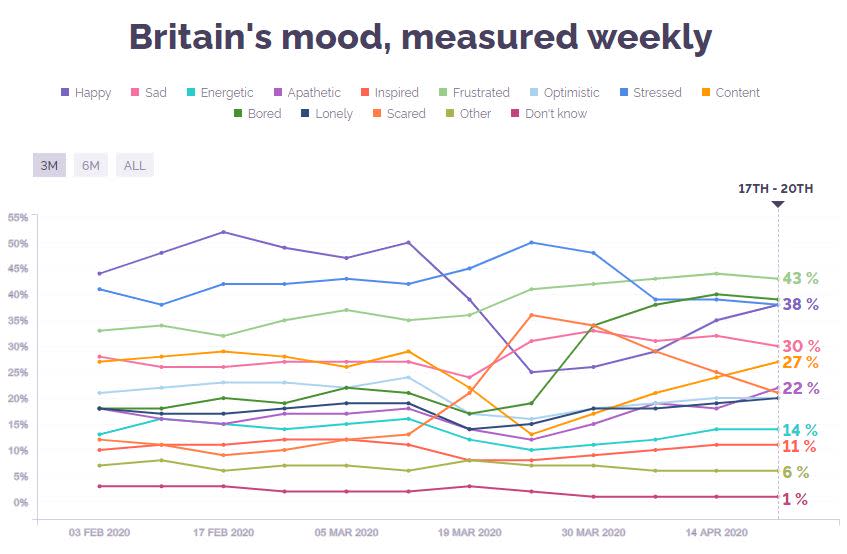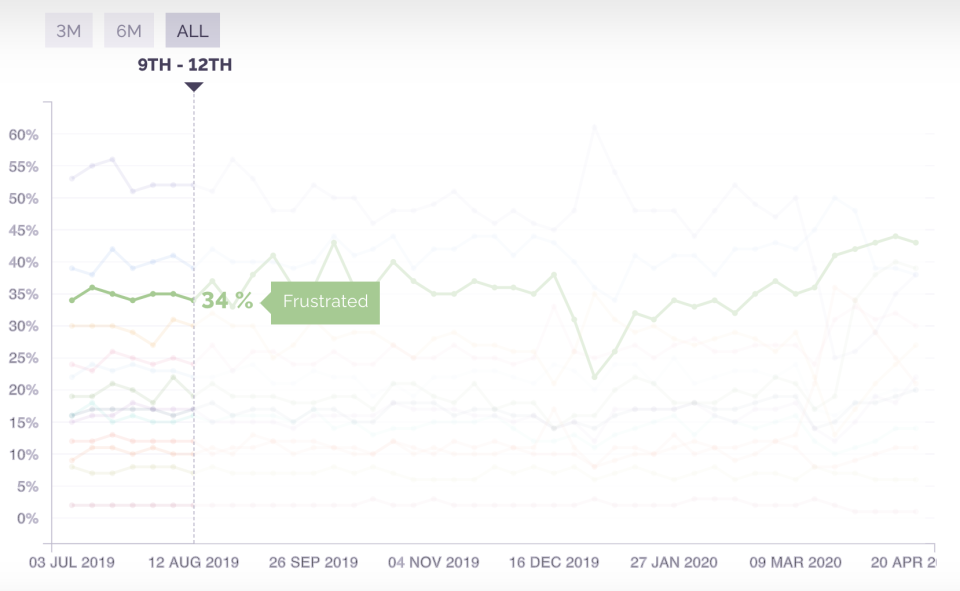Coronavirus: Revealing graphs show how lockdown has affected our happiness

A revealing graph from YouGov has shown how the coronavirus lockdown has affected happiness, boredom and stress levels in the UK.
Brits have gone through a rollercoaster of emotions since Boris Johnson announced a nationwide lockdown on 23 March.
New data shows the country was at its lowest point shortly after the restrictions were announced.
Happiness levels were at 25% late last month but have since climbed back up to 38%.
Read more: Piers Morgan and care minister in heated on-air row over coronavirus testing




The British people were also at their least optimistic in March at 16% but this has since risen to 20%.
Stress levels have remained high over the past few weeks, peaking at 50% in March.
The questionnaire also revealed boredom and loneliness were at around their highest levels in the last three months at 39% and 20% respectively.
Latest coronavirus news, updates and advice
Live: Follow all the latest updates from the UK and around the world
Fact-checker: The number of COVID-19 cases in your local area
6 charts and maps that explain how COVID-19 is spreading
But people are feeling less scared now, with 21% people admitting they were afraid on Tuesday compared to 36% in late March.
However, the nation is still sad, with levels currently at 30%.
In total, around 2,000 respondents every week in the UK are asked by YouGov: “Broadly speaking, which of the following best describe your mood and/or how you have felt in the past week.”

The UK extended its lockdown last Thursday as stand-in leader and foreign secretary Dominic Raab ordered Britons to stay at home for at least another three weeks to prevent the spread of coronavirus.
The announcement, which had been widely expected, means Britons must stay at home unless they are shopping for basic necessities, or meeting medical needs.
They are allowed to exercise in public once a day and can travel to work if they are unable to work from home.
Read more: Government faces huge backlash after U-turn letter about EU ventilator scheme
The measures were initially announced on 23 March for an initial three-week period.
Cabinet Office minister Michael Gove denied earlier this week that the government was considering lifting the lockdown in phases over the coming months after a report from BuzzFeed.
He told Sky News: “The facts and the advice are clear at the moment that we should not be thinking of lifting these restrictions yet.”
Coronavirus: what happened today?
Click here to sign up to the latest news, advice and information with our daily Catch-up newsletter

 Yahoo News
Yahoo News 
